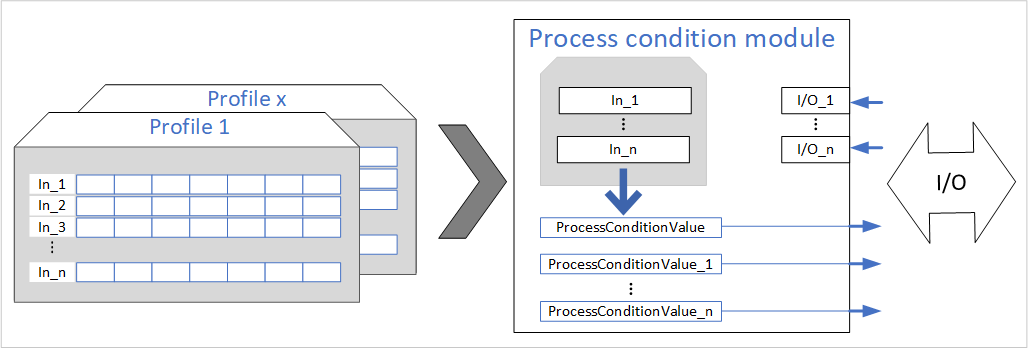This module type is always available. No license is needed.
The function of this module type is to describe different states that a process/plant can have and to identify them via a characteristic value, the so-called condition signal. Depending on the characteristics of a process and the planned application, the various process states are determined by means of so-called process conditions. These process conditions, in turn, result from a combination of different process signals, such as
-
Driving mode/operating status
-
Speeds, rotational speeds, temperatures, pressures
-
Material type
-
Product features
-
Tool type (material, diameter)
Each process condition is defined and stored in the form of a profile. When configuring a "Process condition" module, the appropriate profile is then loaded, which then allows the module to output the appropriate signals.
Process conditions are mainly used to enable the self-learning modules to communicate the current process condition both when learning the reference curves and during the current calculation. The following modules are so called self-learning modules:
-
ibaInSpectra Auto-Adapting
-
ibaInCycle Auto-Adapting
During configuration of the auto-adapting modules, this corresponds to the "status signal" parameter in the general module settings.
The figure below shows the principle of the profile-based process condition.

The profile-based concept also offers the possibility of know-how protection and license-controlled use. For example, if your process condition contains information that deserves protection, you can prevent it from being viewed or modified as the profiles are supported by the know-how protection feature in ibaPDA's I/O Manager. Furthermore, the use of a process condition can be bound to certain license numbers (dongles) by means of the profile property.
To protect the profiles, see also Protecting profiles.